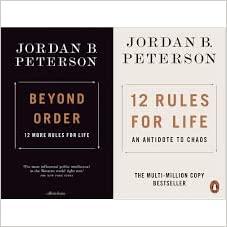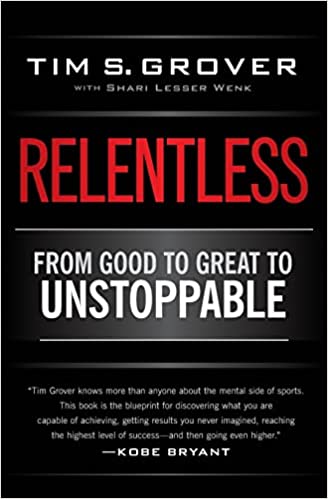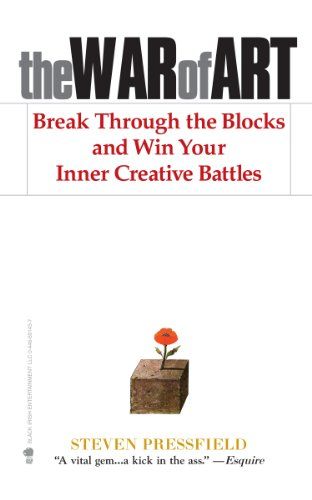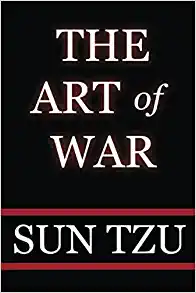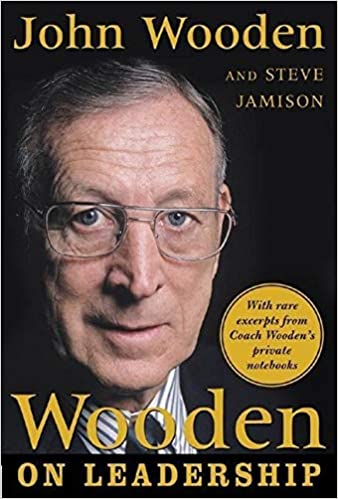7 Rules For Success: From 7 Great Books
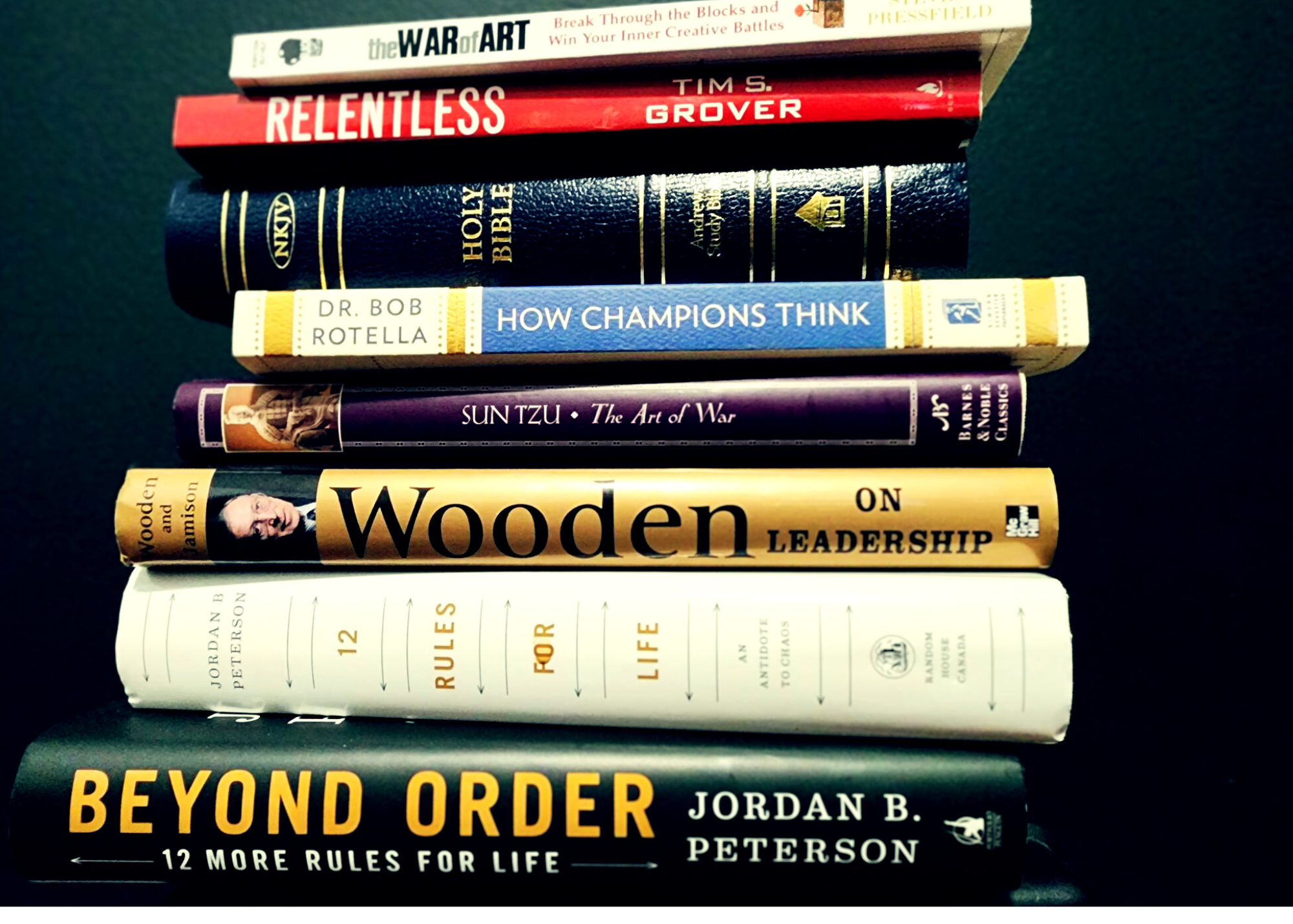
Based on a collection of my favorite works, I have extracted seven rules of success, taking into consideration the main principles of each book:
- Embrace Responsibility and Control (derived from Jordan Peterson's 12 Rules for Life & Beyond Order)
- Understand that personal responsibility is the basis for freedom and success. You have control over your actions, reactions, and attitudes.
- Cultivate an Unstoppable Mindset (inspired by Tim S. Grover's Relentless)
- Approach every task with an indomitable will and relentless pursuit. Avoid complacency and continually strive to be better than you were yesterday.
- Think Like a Champion (from Dr. Bob Rotella's How Champions Think)
- Maintain a positive and resilient mentality. Embrace challenges as opportunities for growth. Adopt the mindset of a winner, not just in sports, but in all aspects of life.
- Harness the Power of Discipline (inspired by Steven Pressfield's The War of Art)
- Understand that resistance is a natural force that tries to prevent you from achieving greatness. Discipline and consistency are your weapons against it.
- Master Strategic Thinking (from Sun Tzu's The Art of War)
- Develop strategic thinking to win not just battles, but wars. Understand the value of knowledge, planning, and the use of indirect strategies.
- Live a Life of Love and Faith (inspired by the Bible)
- Prioritize love, kindness, and faith. Show compassion and forgiveness. Value truth and stand firm in your beliefs.
- Lead with Integrity and Empathy (from John Wooden's On Leadership)
- Lead with humility and integrity. Show genuine care and empathy for others. Success in leadership is about empowering and influencing others positively.
These seven rules provide a comprehensive guide to achieving success and living a meaningful life, in sports, business, or personal relationships.
1. Embracing Responsibility and Control: The Peterson Pathway to Freedom and Success
Jordan Peterson, a world-renowned psychologist and best-selling author, is hailed for his enlightening perspectives on personal development. A central theme in his influential works, "12 Rules for Life" and "Beyond Order," is the profound value of embracing responsibility and control. But how does this concept unfold, and what role does it play in shaping a path to freedom and success?
Embracing Responsibility: A Pathway to Purpose
Peterson’s works abound with the idea that responsibility is the bedrock of a purposeful life. As he writes in "12 Rules for Life," “It’s responsibility, not rights that provide people with meaning.” This suggests that responsibility goes beyond fulfilling obligations or ticking off tasks. It's about willingly shouldering burdens and contributing in our unique ways, thereby finding purpose and significance in our actions.
He suggests that life's most profound satisfactions come from responsibility. Whether it's mastering a profession, nurturing a family, or contributing to the community, the fulfillment we derive correlates with the responsibility we willingly undertake.
Peterson also emphasizes accountability, arguing that our decisions carve our life’s path. As he says in "Beyond Order," “You must determine where you are going in your life, because you cannot get there unless you move in that direction.” Accepting this truth empowers us, marking a critical step towards success.
Controlling What’s Within Reach: Actions, Reactions, and Attitudes
Peterson’s perspective on control doesn’t hinge on manipulating life events—indeed, he acknowledges this is impossible. Instead, he focuses on elements within our grasp: our actions, reactions, and attitudes.
While we can't control life's unexpected turns, we dictate our responses. Peterson writes, "Between stimulus and response, there is a space. In that space is our power to choose our response.” This perspective equips us to respond proactively, enabling us to steer our destiny rather than let circumstances rule us.
Control, in Peterson’s view, also applies to our attitudes. Our outlook colors our world, affecting how we interpret and interact with our environment. He suggests embracing courage, resilience, and optimism to navigate life's adversities and keep moving towards our goals.
Responsibility and Control: Peterson’s Blueprint for Freedom and Success
Peterson intertwines responsibility and control, creating a potent formula for freedom and success. Accepting responsibility allows us to exert control over our life’s course. As Peterson eloquently states in "12 Rules for Life," “When you have something to do, somewhere to be and someone to become: that's the meaning in life.”
Further, taking control of our reactions and attitudes primes us for success. Instead of merely reacting to life, we're actively shaping it. This proactive stance enables us to confront obstacles, seize opportunities, and fulfill our aspirations.
Jordan Peterson's philosophy of embracing responsibility and control offers a robust guide to personal freedom and success. By accepting responsibility and harnessing control over our actions, reactions, and attitudes, we can carve out meaningful lives, surmount challenges, and author our own success narratives. As Peterson powerfully states, "You're going to pay a price for every bloody thing you do and everything you don't do. You don't get to choose to not pay a price. You get to choose which poison you're going to take."
2. Cultivating an Unstoppable Mindset: Unleashing Your Inner Relentless Warrior with Tim Grover
Tim S. Grover, a master trainer to high-performing athletes and the celebrated author of "Relentless," is an undisputed authority on peak performance and mental tenacity. A cornerstone of his success philosophy is the cultivation of an "unstoppable mindset." What does it entail to cultivate this mindset, and how can it redefine our approach to life and success?
Unstoppable Mindset: The Key to Being Relentless
Grover's concept of an unstoppable mindset goes beyond mental strength or resilience. It encompasses the relentless pursuit of goals, triumphing over adversities, and an insatiable hunger for self-improvement. It's the distinguishing factor between good and greatness.
In "Relentless," Grover insists on confronting every task, small or large, with a spirit of unwavering determination and relentless pursuit. He quotes, "The only difference between feedback and criticism is how you hear it." This philosophy transcends meeting expectations—it's about setting the bar higher, challenging the status quo, and refusing mediocrity.
Complacency: The Silent Assassin of Success
One major obstacle in the quest for success, Grover highlights, is complacency. Labelled as the silent assassin of progress, complacency is the misconception that past successes warrant future achievements. Grover insists that true winners never grow complacent. They understand the ceaseless nature of self-improvement and are perpetually striving for better.
Striving for Perpetual Improvement
Grover upholds the relentless pursuit of self-improvement as the pillar of an unstoppable mindset. This involves daring to venture beyond comfort zones, challenging personal boundaries, and embracing failure as an integral part of the journey to success.
In Grover's words, "The only way you can light other people on fire is to be lit yourself, from the inside." This relentless pursuit isn't restricted to professional or athletic achievements but extends to personal growth and transformation. It underscores becoming a better version of oneself with each passing day.
Cultivating an unstoppable mindset, as explained by Tim S. Grover, transcends mere goal attainment. It's about persistently challenging boundaries, triumphing over challenges, and tirelessly seeking self-improvement. This relentless ethos is the distinguishing factor that separates the truly successful from the merely competent.
As Grover encapsulates in his book, "Being relentless means demanding more of yourself than anyone else could ever demand of you, knowing that every time you stop, you can still do more. You must do more."
So, dare to cultivate your unstoppable mindset. Approach each task with indomitable will and relentless pursuit. Remember, success is a journey, not a destination, and there is always room at the top—for those who are relentless.
3. The Champion's Mindset: Dr. Bob Rotella's Guide to Success
Dr. Bob Rotella, a world-renowned sports psychologist and author of "How Champions Think," has been instrumental in shaping the mental game of countless successful athletes. His philosophy transcends the realm of sports, offering invaluable insights on cultivating a winning mindset in all walks of life. A key principle is maintaining a positive and resilient mentality while viewing challenges as opportunities for growth.
The Champion's Mentality: Positivity and Resilience
According to Rotella, a champion's mentality is anchored in positivity and resilience. As he states in his book, "Attitude is everything for success." It's not just about remaining optimistic in the face of adversity, but also about resilience—bouncing back from setbacks stronger than ever.
Rotella emphasizes the importance of self-belief and a can-do attitude. As he insists, "You have to train your mind like you train your body." A positive mindset, he argues, primes you for success and helps you navigate the rough terrains of your journey with determination and grace.
Embracing Challenges: The Gateway to Growth
Challenges, as per Rotella's philosophy, are not barriers but bridges to personal growth and self-improvement. They force us out of our comfort zones, testing our resolve and enabling us to uncover our true potential. He encourages us to welcome challenges with open arms and to leverage them as opportunities for learning and development.
Rotella cites the example of golfer Darren Clarke, who despite facing numerous professional and personal setbacks, refused to let them derail his career. Instead, he viewed these challenges as stepping stones on his path to success. This mindset led Clarke to win the 2011 Open Championship, demonstrating the transformative power of embracing challenges.
Adopting the Winner's Mindset: Beyond the Sports Arena
Rotella's philosophy isn't confined to sports. He advocates adopting a winning mindset in every sphere of life. A winner's mindset isn't about conquering others; it's about surpassing your own previous best, consistently striving for improvement, and not letting failures define you.
In Rotella's words, "The person who can get up one more time than they fall is going to win." This mindset allows us to take control of our lives, strive towards our goals with unwavering determination, and ultimately, shape our destiny.
Dr. Bob Rotella's teachings provide us with an empowering framework to navigate life's challenges and to strive towards success. By cultivating positivity, resilience, and a winning mindset, we can transform our dreams into reality.
As Rotella rightly says, "Confidence is the most important single factor in this game, and no matter how great your natural talent, there's only one way to obtain and sustain it: work." Let's adopt the champion's mindset in our journey of life and become masters of our game!
3. The Power of Discipline: Wisdom from Steven Pressfield's The War of Art
Steven Pressfield, celebrated author of 'The War of Art,' shines an insightful spotlight on the battlefield of creativity. One of his key tactics to conquer this battle? Harness the power of discipline. But what does it mean to truly harness discipline, and how can it catapult us towards our personal and professional victories?
The Relentless Adversary: Resistance
In the realm of Pressfield's philosophy, resistance is the formidable adversary that every artist, entrepreneur, or aspiring achiever must face. Resistance, Pressfield asserts, "is a repelling force. It's negative. Its aim is to shove us away, distract us, prevent us from doing our work."
Whether in the form of procrastination, self-doubt, or fear of failure, resistance is the saboteur that tries to keep us from expressing our true potential.
The Ultimate Weapon: Discipline
Enter discipline, the unsung hero in 'The War of Art.' In Pressfield's worldview, discipline is more than mere routine or self-control. It is the resilient force that propels us towards our goals, regardless of the obstacles in our way.
"Turning pro is a mindset," Pressfield explains, "If we are struggling with fear, self-sabotage, procrastination, self-doubt, etc., the problem is, we’re thinking like amateurs. Amateurs don’t show up. Professionals do."
In essence, discipline is the steadfast commitment to show up, day after day, whether we feel like it or not. It is about putting in the work, embracing the grind, and turning our creative pursuits into professional endeavors.
Taming Resistance: The Power of Consistency
Resistance, Pressfield asserts, is not to be feared but understood. It is a natural force that arises whenever we strive to ascend to a higher level in our personal or professional lives. Yet, it is through the power of discipline, of consistent and relentless effort, that we can tame this force.
Pressfield uses the analogy of a muse, an inspiring entity that rewards the disciplined artist with inspiration. But the muse, he suggests, doesn't favor those who merely dabble in their craft. The muse bestows her gifts upon those who show up consistently, who commit themselves fully to their work.
Steven Pressfield's 'The War of Art' imparts a compelling lesson: To harness the power of discipline is to conquer the internal and external battles that impede our path to success. By showing up consistently, by committing ourselves fully to our work, we can overcome resistance, attract the muse, and ultimately, emerge victorious on the battlefield of creativity.
In the words of Pressfield himself, "The most important thing about art is to work. Nothing else matters except sitting down every day and trying."
4. Master Strategic Thinking: Lessons from Sun Tzu's The Art of War
In the pantheon of strategic wisdom, 'The Art of War' by ancient Chinese general Sun Tzu holds an esteemed position. It's more than a manual for warfare; it's a guide to navigating the battlefields of life itself. Among its many nuggets of wisdom, one shines particularly bright: the call to master strategic thinking. But how do we interpret this in the context of our contemporary battles?
The Art of Strategic Thinking
Sun Tzu paints a vivid picture of strategic thinking as an intellectual exercise that surpasses the act of winning individual battles. "In the midst of chaos, there is also opportunity," he observes, indicating that strategic thinking is not about reacting to immediate challenges but perceiving the broader tapestry of possibilities that each situation presents.
Mastering strategic thinking, then, is about understanding the deeper dynamics of any situation and manipulating these dynamics to attain our objectives. It is about comprehending that every action, every decision, influences the battlefield's environment and shapes the outcome of our endeavors.
Knowledge and Planning: The Twin Pillars of Strategy
Knowledge and planning are pivotal elements in Sun Tzu's strategic doctrine. "If you know the enemy and know yourself, you need not fear the result of a hundred battles," Sun Tzu proclaims. Knowledge, in this sense, is not limited to understanding our strengths and weaknesses. It also encompasses a deep comprehension of our opponents, our environment, and the rules that govern our battlefield.
Planning, for Sun Tzu, is the logical extension of knowledge. It is the act of forecasting the outcomes of our actions, of anticipating the reactions of our opponents, and of adapting our strategies to the ever-changing dynamics of the battlefield. Planning, Sun Tzu reminds us, is not about predicting the future, but preparing for it.
The Subtlety of Indirect Strategies
Sun Tzu's strategic wisdom recognizes the power of indirect strategies. Rather than confronting challenges head-on, Sun Tzu advises us to leverage our strengths, exploit our opponents' weaknesses, and create opportunities for victory. This subtle approach to strategy involves disrupting the balance of the battlefield, creating confusion, and striking at the opportune moment.
In the context of 'The Art of War,' mastering strategic thinking is about understanding the deeper dynamics of our situations, leveraging knowledge and planning, and employing indirect strategies to achieve our goals. Sun Tzu's wisdom still resonates today, reminding us that victory, in any context, stems from the mind before it is realized on the battlefield.
As Sun Tzu eloquently stated, "Strategy without tactics is the slowest route to victory. Tactics without strategy is the noise before defeat."
5. Living a Life of Love, Truth, and Faith: Wisdom from the Bible
The Bible, an enduring wellspring of wisdom and spiritual guidance, offers a compelling blueprint for a meaningful and fulfilled life. Among its many teachings, the emphasis on living a life of love, truth, and faith is particularly profound. But how do we translate these ancient virtues into our modern context?
Love as an Imperative
One of the most cited scriptures, 1 Corinthians 13:13, declares, "And now these three remain: faith, hope and love. But the greatest of these is love." This is not about mere affection. It's a call to demonstrate unselfish love towards others, echoing in the oft-quoted Golden Rule, "Do unto others as you would have them do unto you" (Luke 6:31).
Love in this context becomes an active verb, an unending effort to show compassion, kindness, and empathy towards all, not because it's easy or convenient, but because it's the right thing to do. This form of love, the Bible teaches, is the foundation for a truly meaningful life.
Truth: The Beacon of Integrity
Truth, as the Bible counsels, is not only a value to cherish but also a path to tread. "You shall know the truth, and the truth shall set you free" (John 8:32), signifies the importance of truth as an integral part of our lives. Whether it's in our interactions with others or in the way we perceive ourselves, standing firm in truth paves the way to genuine freedom and inner peace.
Faith: The Bedrock of Life
Faith, as per the Bible, is more than a spiritual belief. It is a life-affirming trust, a fundamental conviction that grounds us in the face of adversity and uplifts us in times of triumph. As Hebrews 11:1 declares, "Now faith is confidence in what we hope for and assurance about what we do not see." Faith is a conscious choice to remain hopeful and positive, to see beyond immediate circumstances and believe in the unfolding of a greater plan.
Living a life of love, truth, and faith as guided by the Bible isn't about adhering to religious doctrines. It's about cultivating a compassionate heart, an honest spirit, and an unshakeable faith, creating a life that resonates with meaning and purpose. It's about understanding that, as the Bible reveals in Galatians 5:22-23, "the fruit of the Spirit is love, joy, peace, patience, kindness, goodness, faithfulness, gentleness, and self-control."
2. Leading with Integrity and Empathy: John Wooden's Blueprint for Success
Widely respected as one of the greatest basketball coaches in history, John Wooden's wisdom goes beyond the sports arena. His philosophies, as reflected in his work, "On Leadership," provide valuable insights into leadership principles that transcend industries and professions. Among his teachings, Wooden underlines the importance of leading with integrity and empathy. But what do these values entail in the context of leadership?
The Essence of Integrity in Leadership
Wooden firmly believed that integrity formed the cornerstone of effective leadership. He once said, "Be more concerned with your character than your reputation, because your character is what you really are, while your reputation is merely what others think you are." For Wooden, integrity involved staying true to one's principles, acting consistently and honestly, and doing the right thing even when no one is watching.
In a leadership role, integrity earns the trust and respect of team members. It creates an environment of transparency and openness, where individuals feel safe to express their thoughts and ideas. A leader with integrity sets an example for the team, demonstrating that success is not just about results, but also about how those results are achieved.
Empathy: The Heart of Leadership
Wooden's leadership philosophy also heavily emphasized empathy, the ability to understand and share the feelings of others. He believed that leaders should show genuine care for their team members. To quote Wooden, "I worry that business leaders are more interested in material gain than they are in having the patience to build up a strong organization, and a strong organization starts with caring for their people."
This belief translated into his coaching style, where he was known for his deep concern for each player, both on and off the court. By putting himself in their shoes, Wooden was able to understand their motivations, fears, and aspirations, enabling him to provide more effective guidance and support.
The Power of Leading with Integrity and Empathy
By underscoring the importance of leading with integrity and empathy, Wooden presented a compelling approach to leadership. Integrity builds trust and creates a positive and transparent environment, while empathy ensures each team member feels valued and understood. When leaders incorporate these principles, they can influence and empower others more effectively, ultimately leading their teams to success.
John Wooden's insights into leading with integrity and empathy provide a powerful blueprint for successful leadership. They underline the importance of principles and people, reminding us that success in leadership is not just about achieving goals, but also about the journey and the people who take it with us.
Put It All Together
The wisdom extracted from these illustrious authors and their timeless works presents a multifaceted guide to personal development, success, and purposeful living. They remind us that embracing responsibility and control, as Jordan Peterson urges us, forms the foundation of our journey to success. Coupled with Tim Grover's unstoppable mindset, we find the courage to persistently pursue our goals, unhampered by complacency.
Yet, this journey is not solely about relentless pursuit and control. As Dr. Bob Rotella asserts, adopting a champion's mindset means maintaining positivity and resilience, viewing challenges as stepping stones rather than obstacles. It's in this mental arena that Steven Pressfield's advocacy for discipline comes to play, arming us against resistance, the formidable opponent to progress.
The path to success also demands strategic thinking, a lesson we learn from Sun Tzu's ancient yet ever-relevant wisdom. It's about utilizing knowledge, meticulous planning, and indirect strategies to not just win battles, but to triumph in wars.
Amid all these pursuits, we must never lose sight of the enduring values of love, faith, and integrity. The Bible reminds us to prioritize kindness and truth, while John Wooden's leadership ethos underscores the importance of leading with empathy and humility.
Incorporating these principles into our lives does not promise a journey devoid of challenges. However, it assures us that with each step we take, we're growing, learning, and inching closer to becoming the best versions of ourselves. In the end, true success lies not in the destination, but in the richness of the journey itself.


